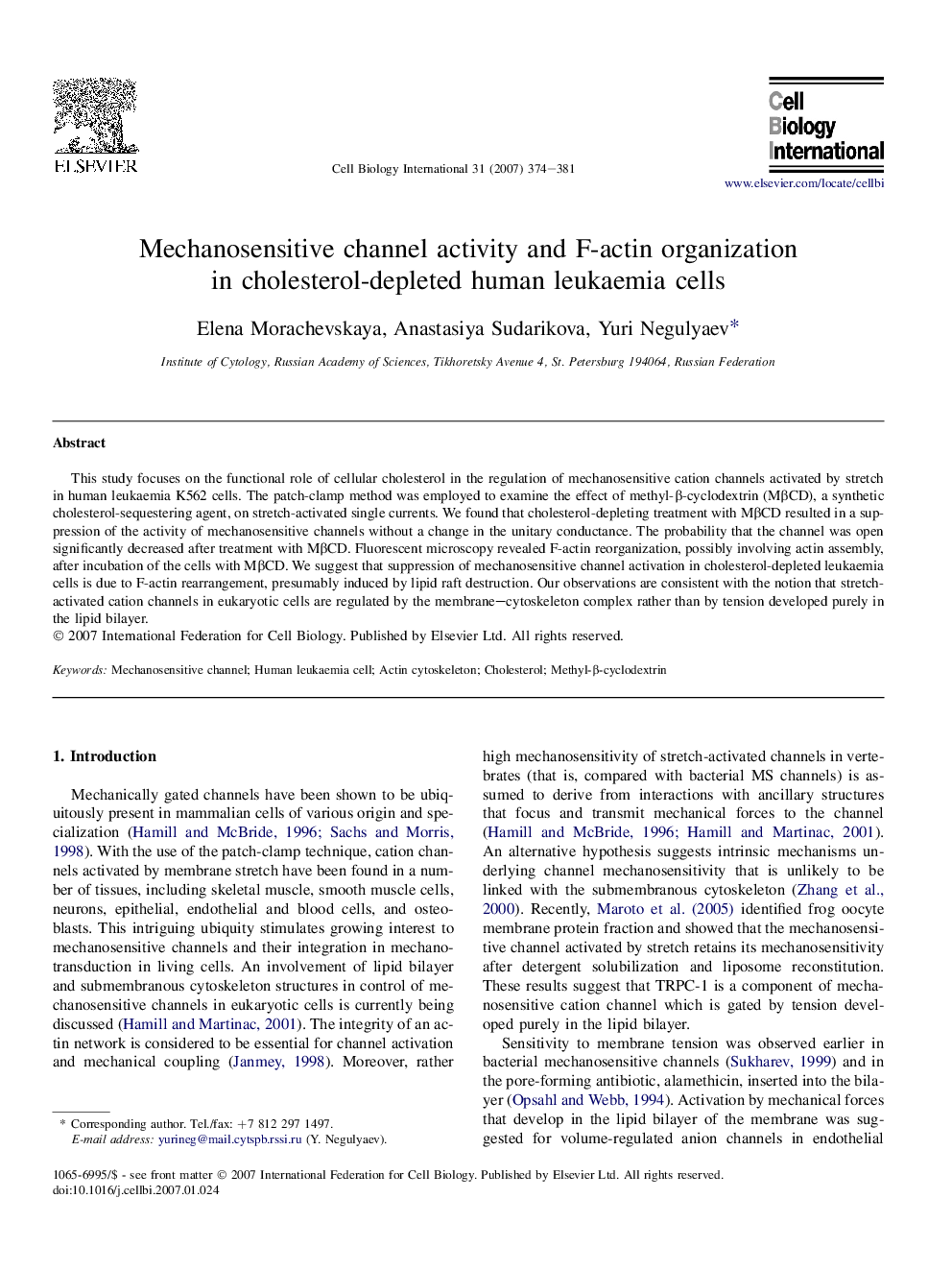| Article ID | Journal | Published Year | Pages | File Type |
|---|---|---|---|---|
| 2067674 | Cell Biology International | 2007 | 8 Pages |
Abstract
This study focuses on the functional role of cellular cholesterol in the regulation of mechanosensitive cation channels activated by stretch in human leukaemia K562 cells. The patch-clamp method was employed to examine the effect of methyl-β-cyclodextrin (MβCD), a synthetic cholesterol-sequestering agent, on stretch-activated single currents. We found that cholesterol-depleting treatment with MβCD resulted in a suppression of the activity of mechanosensitive channels without a change in the unitary conductance. The probability that the channel was open significantly decreased after treatment with MβCD. Fluorescent microscopy revealed F-actin reorganization, possibly involving actin assembly, after incubation of the cells with MβCD. We suggest that suppression of mechanosensitive channel activation in cholesterol-depleted leukaemia cells is due to F-actin rearrangement, presumably induced by lipid raft destruction. Our observations are consistent with the notion that stretch-activated cation channels in eukaryotic cells are regulated by the membrane-cytoskeleton complex rather than by tension developed purely in the lipid bilayer.
Related Topics
Life Sciences
Biochemistry, Genetics and Molecular Biology
Biophysics
Authors
Elena Morachevskaya, Anastasiya Sudarikova, Yuri Negulyaev,
